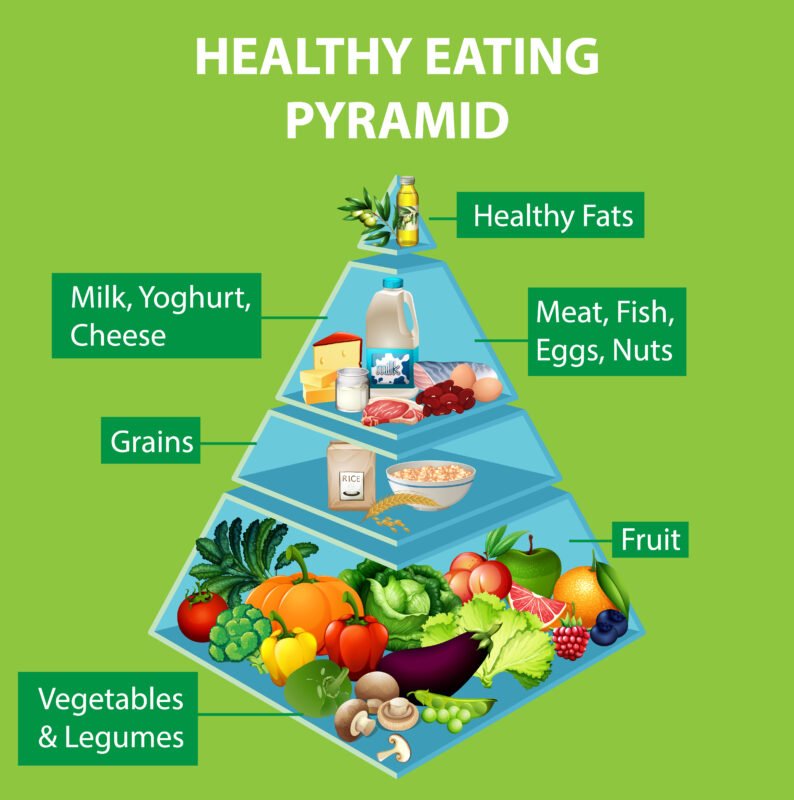Roles of Nutrition
The Roles Of Nutritions In Health plays a crucial role in maintaining optimal health and well-being. It involves the consumption of essential nutrients from food, which are vital for supporting various bodily functions. This article explores the significance of nutrition, why we need it, and the wide-ranging benefits it provides.
Why Do We Need Nutrition?
The Roles Of Nutritions In Health are essential for numerous reasons. It provides the body with energy to perform daily activities, supports growth and development, repairs tissues, and helps maintain a healthy immune system. Nutrients obtained from food enable the body to function optimally and prevent nutrient deficiencies, which can lead to various health issues.
Best Nutrients for Health
a. Carbohydrates: These are the body’s primary source of energy, providing fuel for physical activity and brain function.
b. Proteins: Crucial for building and repairing tissues, supporting immune function, and producing enzymes and hormones.
c. Fats: Important for energy storage, insulation, protecting organs, and absorbing fat-soluble vitamins.
d. Vitamins: Play a vital role in maintaining various bodily functions and preventing deficiency diseases.
e. Minerals: Required for maintaining healthy bones, teeth, and overall bodily functions.
f. Water: Essential for hydration, digestion, nutrient transport, temperature regulation, and overall bodily functions.

The Benefits of Nutrition
a. Disease Prevention: A well-balanced diet rich in nutrients can help prevent chronic diseases such as heart disease, diabetes, and certain cancers.
b. Energy and Performance: Proper nutrition provides the necessary fuel and nutrients to optimize physical and mental performance, enhancing energy levels, focus, and productivity.
c. Immune System Support: Adequate nutrition strengthens the immune system, reducing the risk of infections and promoting faster recovery from illness. d. Healthy Weight Management: A balanced diet contributes to maintaining a healthy weight, reducing the risk of obesity-related health problems.
e. Improved Cognitive Function: Proper nutrition supports brain health, memory, concentration, and overall cognitive function.
f. Bone and Muscle Health: Adequate intake of calcium, vitamin D, and protein supports healthy bone density and muscle strength.

Use of Nutrition in a Proper Way
- Eat a well-balanced diet that includes a variety of nutrient-rich foods from all food groups.
- Include a combination of carbohydrates, proteins, and healthy fats in each meal.
- Consume plenty of fruits and vegetables to obtain essential vitamins, minerals, and antioxidants.
- Choose whole grains over refined grains for higher fiber content and better nutrient density.
- Incorporate lean sources of protein such as poultry, fish, legumes, and nuts into your meals.
- Limit the intake of saturated fats, trans fats, and added sugars.
- Stay hydrated by drinking an adequate amount of water throughout the day.
- Be mindful of portion sizes to avoid overeating and maintain a healthy weight.
- Cook and prepare food in a way that preserves nutrients, such as steaming or lightly sautéing vegetables.
[woopspro_products_slider stock_status=’instock’ cats=’653′]
The Roles Of Nutritions In Health plays a vital role in both physical and mental health. The relationship between nutrition and mental well-being is significant, as the food we consume directly impacts our brain function and emotional state. Adequate nutrition provides the necessary building blocks for neurotransmitters and other chemicals that regulate mood and cognition. By fueling our bodies with wholesome foods, we can support optimal brain function and promote positive mental health outcomes. Understanding the crucial role of nutrition in mental health is essential for developing holistic approaches to well-being and fostering a healthy mind-body connection. Incorporating nutritious foods into our diets can have a profound impact on our overall health, including mental well-being.
FAQs:
Q1: What is the recommended daily intake of water? A1: The recommended daily intake of water varies depending on factors such as age, sex, and activity level. Generally, it is recommended to drink about 8 cups (64 ounces) of water per day.
Q2: Can a balanced diet alone provide all the necessary nutrients? A2: A well-balanced diet can provide most of the necessary nutrients, but in certain cases, dietary supplements may be recommended to meet specific nutrient needs. It is best to consult with a healthcare professional or registered dietitian for personalized advice.
Q3: Are all fats bad for health? A3: No, not all fats are bad for health. Unsaturated fats, such as those found in avocados, nuts, and olive oil, can have positive effects on heart health when consumed in moderation. It is important to limit the intake of saturated and trans fats, which are less healthy.






 No products in the cart.
No products in the cart.